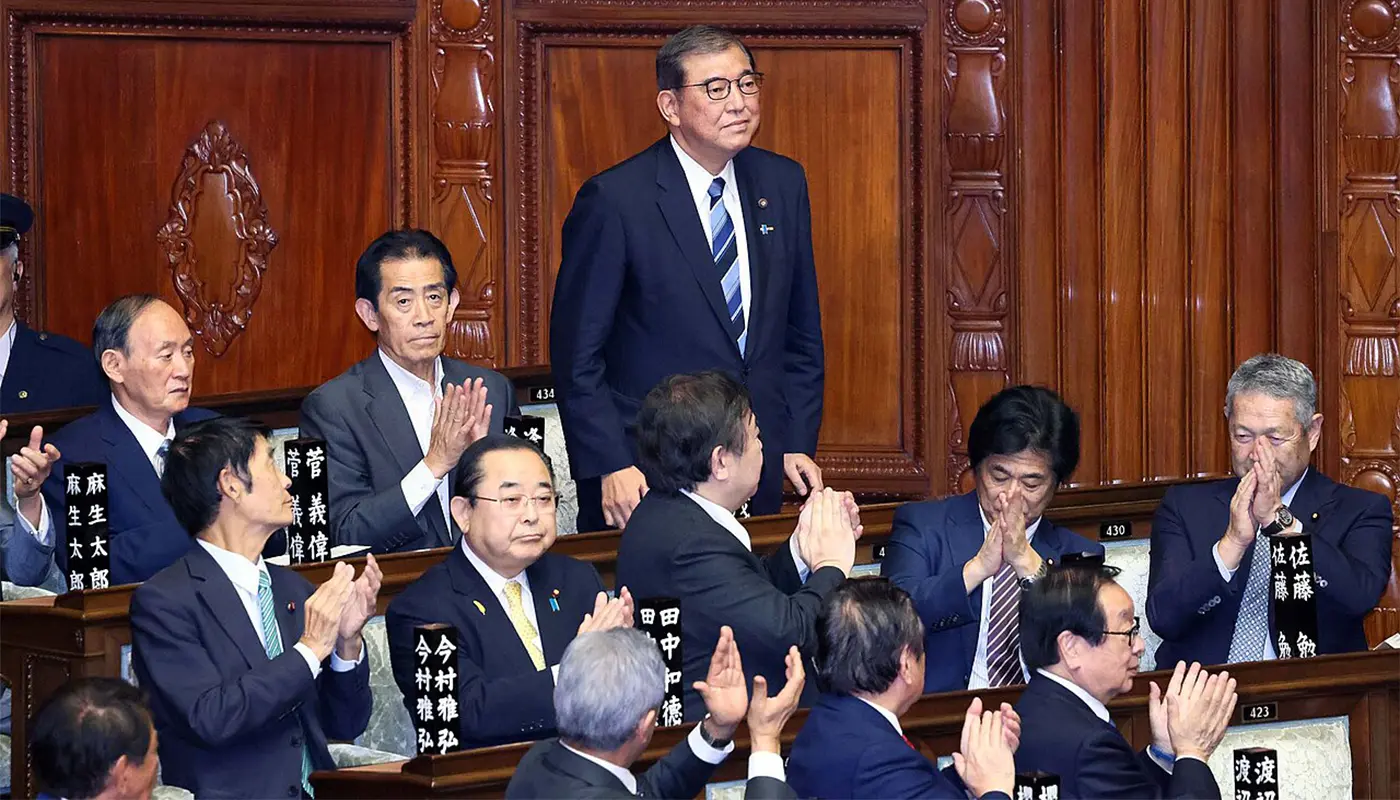Tokyo – Japanese Prime Minister Shigeru Ishiba signalled strong reservations about issuing a formal written agreement with the United States on recently negotiated tariff measures, while simultaneously calling for national reflection on Japan’s World War II legacy.
Ishiba said there is “no plan to issue a joint document” formalizing the 15% reciprocal U.S. tariffs agreed upon, reducing threats of a 25% levy on Japanese exports. Instead, he defended the decision as a deliberate move to avoid bureaucratic delays, stressing the urgency of prompt U.S. implementation of the tariff reduction.
At the same time, Prime Minister Ishiba has reiterated Japan’s commitment to World War II historical accountability. He has criticized wartime leadership decisions, calling for deeper examination of why the government persisted in war that was deemed unwinnable, and why the public was not properly informed before decisions were made.
Key Points
The landmark U.S.–Japan trade deal negotiated in late July cuts reciprocal tariffs from 25% to 15% for auto and other goods, in exchange for $550 billion in Japanese investment in U.S. industries such as autos, semiconductors, and pharma.
Despite the tariff cut, no formal written treaty or public statement is planned, a move that has drawn criticism from opposition lawmakers demanding greater transparency and clarity.
Ishiba is calling for national reflection on Japan’s wartime decisions, emphasizing that past leaders made grave errors leading to catastrophic defeat, and that such historical reckoning is essential for Japan’s future pacifist identity.
With domestic politics under scrutiny following recent electoral setbacks, Ishiba faces pressure from his own party and opposition groups to both implement economic relief (including a proposed ¥10 trillion stimulus to cushion tariff impacts) and to address moral questions surrounding wartime responsibility.
Analysis
Ishiba appears to prioritize speed and flexibility over formalization, believing that delaying agreements for ceremony could jeopardize Japan’s economic interests amid rising U.S. protectionist pressure. His simultaneous push for historical reflection signals an attempt to assert leadership on both foreign policy and moral history, appealing to diverse domestic constituencies.
The absence of a formal document, however, could complicate accountability and follow-through, especially in light of uncertainties around implementation timelines and tariff triggers. As U.S.–Japan dynamics shift under the current U.S. administration, Ishiba’s strategy may be tested by both economic outcomes and public expectations of transparency.





